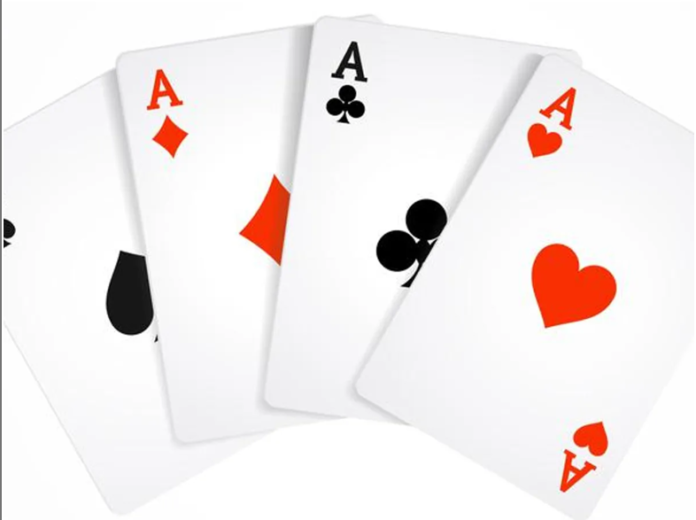Card games have been around for a long time, and these exciting options have proved to be one of the best. From winning on a small scale to large cashouts at online casinos, there are specific cues many use to be successful in the game of cards. One of such cues is the ability to read individuals accurately, know what they’re thinking, and discover what their emotions say about the cards they possess.
While reading card games does not have a specific logic, understanding how people act while playing poker in live casinos shown on WeGamble can significantly increase your chances of winning and make you play confidently. This article gives an insight into the fine art of reading people at poker. Moreover, we will explore the various aspects that can help fine-tune your skills and help you accurately decipher what your opponent’s reactions and emotions say while playing poker means.
Things to Look Out For While Playing The Game of Cards
While Playing the game of cards or poker, specific cues and hints give away your opponent’s intentions. These cues solely depend on what the eyes can see. This section of the article gives an insight into what to look out for to be successful at poker.
❖ Body Language
One of the first things to look out for a while playing poker is your opponent’s body language. Observing and understanding their body language keeps you ahead of them at every stage of the game. While observing their body language, there are a few things to consider. They are and are not limited to:
1. Facial Expressions
While playing cards, you undoubtedly go face-to-face with your opponent. During the game, you must look for signs that reveal emotions. This ability could be in the form of relaxation, tension, anger, or micro-expression. A smile from your opponent may indicate confidence, while a wrinkled brow may indicate a weak hand or confusion. Although these signs may indicate the obvious, it does not mean your opponent will not bluff. Bluffing is simply the act of falsifying your abilities. Over time, card players have mastered the art of bluffing, faking their intentions to defeat their opponents.
2. Posture
Your opponent’s posture tells you a lot about the game they have in hand. If you notice an opponent or a player leaning forward with excitement, it gives a clue that they may have a strong game in hand. If your opponent tends to lean backward during the gameplay, they may have a weak game in hand. You must pay attention to your opponent’s ability to bluff, as they may perform these actions to bluff during the gameplay.
3. Gestures
When your opponent begins to perform gestures like agitation, tapping of fingers, or frolicking with the game chips, these may be signs of anxiety and uneasiness or may serve as a bluff by the opponent.
4. Eye Movements
Eye movements serve as an indicator of someone’s confidence. When an opponent avoids eye contact, it means that the opponent lacks confidence, but if an opponent tends to keep eye contact keeping their eyes steady, it shows that they have a great sense of composure and comfort.
❖ Patterns and Tendencies
Carefully observe players for patterns and tendencies in their betting behavior. Each player may have a unique style when it comes to betting. Here are some factors to consider. Observing your opponent’s patterns, strategies, and tendencies is a way of decoding their betting behavior. With every player having a specific style in which they approach poker, the factors to consider are:
1. Betting Speed
When you make staking decisions quickly, a player has a strong game in hand. On the other hand, when a player takes time to decide on staking options, it may mean that the game they have in hand could be more favorable. When you take note of the speed with which an opponent makes their staking decision, you can tell if they are confident or not and use it to your advantage. Although, sometimes, they may use this trick to relay a bluff you are susceptible to falling for.
2. Bet Sizing
Your opponent’s stake size reveals their confidence in the card they have in hand during the gameplay. When a player suddenly increases their stake size, it means the card they have in hand may guarantee them a win. Also, a small stake may indicate that a player needs more confidence in the game they have in hand. This technique is primarily for players who want to intimidate their opponents. You must be cautious of the bet sizes as experienced players use this technique to keep their opponents in the game by using small stake sizes and later finishing them with a significant stake size.
❖ Emotional Cues
The critical factor of decision-making in the game of cards is emotion. It plays a valuable role in that players display some form of emotion during gameplay. Some of the emotional cues may include:
1. Frustration
When card players get frustrated, they display signs of frustration, including loud sighs, clenched fists, and dropped or tightened jaws. Unfavorable cards in hand can cause frustration, leading players to display signs of frustration and making their opponents sense the frustration they face.
2. Excitement
Excited players in the game of cards find it hard to hide the excitement they experience. Some signs of excitement include broad smiles, amplified eyes, and increased body motions. A player with favourable games in hand may display some signs of excitement and be unable to hide it.
3. Disappointment
When it comes to being disappointed in the game of cards, many players find it hard to hide their disappointment when the cards in hand don’t meet their expectations. Some cues of disappointment include sighs, slouching shoulders, and deflated expressions.

| [donate]
| Help keep news FREE for our readersSupporting your local community newspaper/online news outlet is crucial now more than ever. If you believe in independent journalism,then consider making a valuable contribution by making a one-time or monthly donation. We operate in rural areas where providing unbiased news can be challenging. |

















